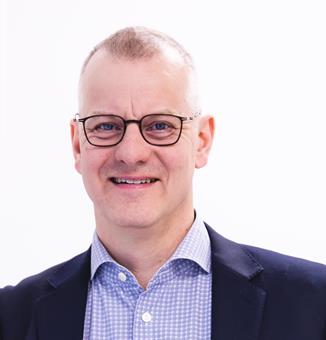Genomic medicine is an expanding research field. Photo credit Nobi_Prizue
“One of the main aims of Genomic Medicine Sweden (GMS) is that everybody who lives in Sweden – not just those who happen to live near specialist hospitals – should have access to precision diagnostics”, says Tobias Strid, doctor of biology and coordinator for the Southeastern Genomic Medicine Centre (GMC Sydöst), one of the seven nodes in the network.
The GMS initiative was started in 2018, and has since then become a national organisation built on cooperation between healthcare, the academic world, industry, patient groups and public authorities. Now, Vinnova – the public authority responsible for funding research and development – is putting a further SEK 96 million into the initiative – a sum which will be matched by funds of SEK 124 million from various regions and universities.
Initially, the initiative will focus on the areas of rare hereditary diseases, cancer and infectious diseases. Furthermore, a shared information infrastructure for gene analysis in the healthcare system is being created to support the regional centres.
“GMC Sydöst is heavily involved in the working groups for bioinformatics/informatics and solid tumours. We also lead the working group for health economics, which is a very important area when it comes to the introduction of precision medicine in healthcare. We also work in the areas of infectious and rare diseases”, says Tobias Strid.
Now that finance for the project has been secured for another three years, GMS is looking forward to a bright future. For GMC Sydöst, this means involvement in a collaboration that aims to implement a national IT infrastructure for gathering data from genetic analyses all over Sweden. The first project will be about the coronavirus SARS-CoV-2. When it comes to SARS-CoV-2, the data gathered can, for example, be used for contact tracing. The IT infrastructure will also help make the data more readily available for the Swedish Public Health Agency.
Which treatment works best?
An important part of GMS’ work is introducing advanced genetic analyses in healthcare. It’s becoming more common to do wide-ranging analyses where relevant parts of the genetic material are chosen and analysed. In many cases, the entire genetic material is read, in a process known as whole genome sequencing.
Analysis of specific genetic regions when diagnosing certain diseases is called panel testing. Panel tests, which can be ordered by doctors, are already being used in diagnostic routines for certain kinds of tumours. In Linköping, circa 800 such tests are performed every year, primarily for lung cancer, bowel cancer and ovarian cancer.
In the case of cancer, genetic tests work to guide the choice of treatment. Certain genetic changes can indicate that a certain kind of treatment will be more effective than others, or, as in some cases, that a treatment is unsuitable for the patient in question. This kind of analysis, used to predict the effects of various possible treatments, is called treatment prediction.
“Several places in Sweden have started using panel tests for blood cancer in clinical diagnostic routines. In the autumn, we’re going to work on validating a panel test for solid tumours. This test is also intended to be used in clinical studies”, says Tobias Strid.
For LiU, this initiative has also involved the founding of the Clinical Genomics unit at the Faculty of Medicine and Health Sciences. The unit is connected to the national SciLifeLab.
“This unit, Clinical Genomics Linköping, is still in the startup phase. I believe it will become an important part of both the faculty’s infrastructure and LiU generally. It will help clinical research, and will also help translate results from experimental research to healthcare – so-called translational research. The facility is also intended to help make methods discovered in the course of research useful for the world of healthcare”, says Tobias Strid.
Strid says that it is important to extend cooperation between the Östergötland region and LiU in the area of genomic medicine, since there are great gains to be had.
Important to be able to share data
Tobias Strid believes that the biggest challenge within precision medicine today is sharing patient data. Widespread data-sharing, even between countries, is important for helping healthcare professionals to make the right diagnosis. This is especially important in cases of disease caused by unusual genetic changes. There are some technical issues to be resolved when it comes to data-sharing, but the biggest issues are legal ones.
“Data-sharing is also very important for driving research in the field. The healthcare system generates lots of genomic medicine data. It would be very beneficial to be able to collect this data and make it available in a secure and organised way, so that it can be used in research”, says Tobias Strid.


